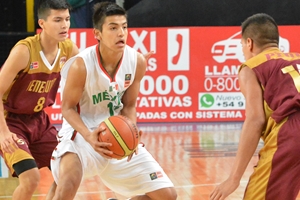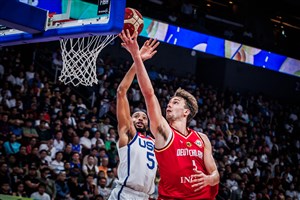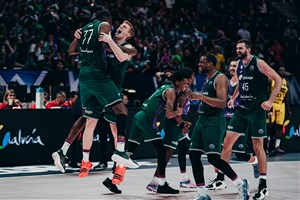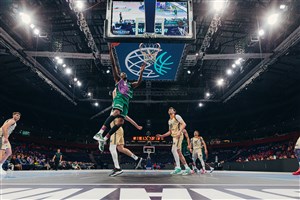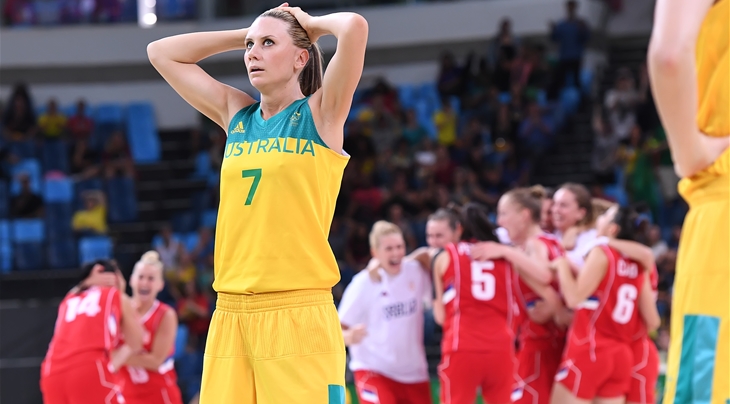
Australian women's basketball needs action
MELBOURNE (Paulo Kennedy's View from Downunder) - It wasn't very long ago the Opals were Australia's most successful women's sporting team and the WNBL this country's number one women's league.
Sadly, those days have disappeared in the rear-view mirror at an alarming rate as other sporting codes, buoyed by massive television deals for their men's competitions, have invested in the peak level of female sport for the first time.
In the short-term it helps their reputations as good corporate citizens while in the long-term they are hoping - through publicity and the creation of more female sporting role models - that they can overturn the fundamental issue of women rarely supporting women's sport, and hence make the venture financially viable.
Up until less than a decade ago, the WNBL and the national netball competition were the only women's games in town. In 2008, soccer joined the low-key party through the W-League and netball upped the ante with the Trans-Tasman competition.
Then the big boys came to play. Cricket Australia started up the Women's Big Bash League, the Australia Rugby Union has formed a women's Rugby Sevens competition following the much-publicised gold medal win at the Rio Olympics, while the AFL dipped their toe in the water with women’s exhibition games and will this year kick-off AFLW.
While all of this has been happening, the WNBL has been taking large steps backwards, losing its long-term broadcast deal with the ABC, failing to find a replacement, dropping the ball with its online coverage and losing significant talent to European competitions.
This has coincided with a period during which the Opals have won just two bronze medals in their past four major competitions - in the four before that they claimed a gold, two silvers and a bronze - while our junior national women's teams had only medalled once this century until 2013, calling into question the world-class quality of the athletes now coming into their peak.
Now you could treat all these different occurrences in isolation. You could say the Opals will bounce back and return to their 'rightful place' on the podium, that the WNBL just needs a TV deal and everything will be alright, that the other sports' forays into women's sport are a flash in the pan.
I disagree on all counts. Women's basketball in Australia has never seen so many rivals and so many challenges and has never been so ill-prepared to face them. Now is the time for considered, strategic action before it enters the trough the men’s game is just coming out of.
For me, the focus must be on reshaping the WNBL so it can both weather the storm from other codes until it is in a position to attract broadcast and commercial support, and continue to act as a major talent pathway for the Opals so our country can continue to be a power at the FIBA Women's Basketball World Cup and Olympics.
The prospect of a meaningful television deal is slim. The other women's leagues either have their broadcast arrangements bankrolled by money from the men's side of things or, in the case of netball, are paying for their own deal with the backing of a national federation that controls the sport at all levels in Australia.
Unfortunately, the WNBL has neither of those luxuries.
What it does have at the moment is an exceptional junior national program, with our girls teams finishing third in 2013, third in 2015 and first in 2016 at FIBA world youth championships. That shows the current program is producing high-level athletes and can produce excellent role models for young girls.
If a newly-modelled WNBL is focussed around strengthening this program and the transition to the senior national team, then all of a sudden the WNBL has meaning and purpose, not just for basketball fans but for those who make funding decisions in bureaucratic offices, and that could be crucial for women’s hoops over the next few years.
So what is the model that can achieve these things, strengthen the national competition and reverse the trend of high-quality players heading to Europe? I don't pretend to have a magic bullet, but I'll discuss a few ideas next week.
Paulo Kennedy
FIBA
FIBA's columnists write on a wide range of topics relating to basketball that are of interest to them. The opinions they express are their own and in no way reflect those of FIBA.
FIBA takes no responsibility and gives no guarantees, warranties or representations, implied or otherwise, for the content or accuracy of the content and opinion expressed in the above article.

